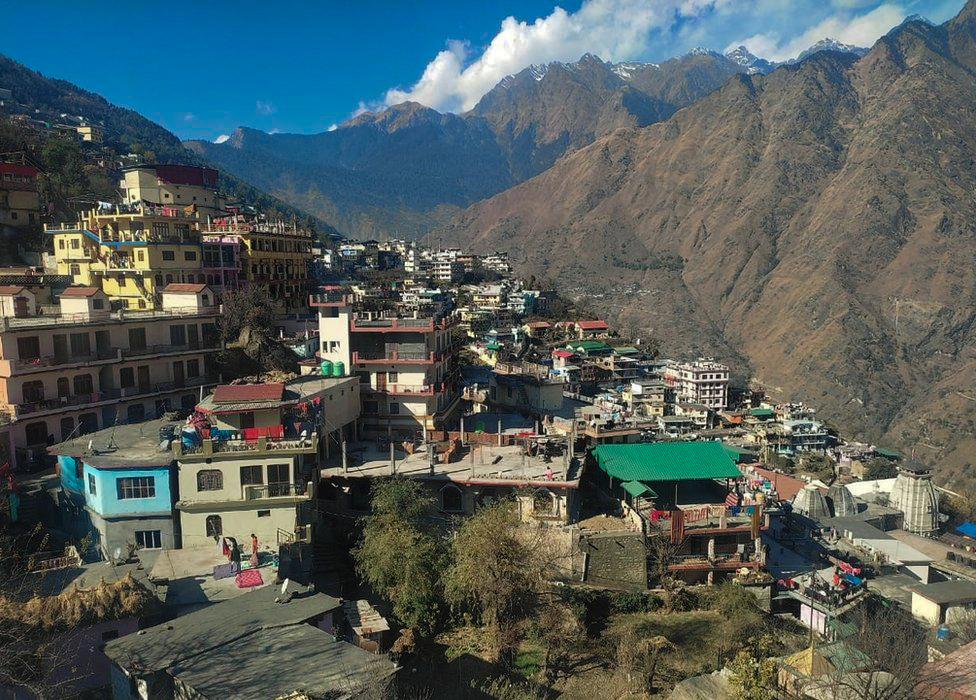Joshimath, a town located in the Indian state of Uttarakhand, has recently been the site of several incidents that have caused concern among local residents and authorities. These incidents include landslides, flash floods, and road closures, which have caused damage to infrastructure and disruption to daily life.
One of the main causes of these incidents is the heavy rainfall that the region has experienced in recent months. The monsoon season, which typically runs from June to September, has brought above-average rainfall to the area, leading to saturated soil and increased risk of landslides. The heavy rainfall has also led to flash floods in nearby rivers, causing damage to bridges and roads.
Another contributing factor to the incidents in Joshimath is the rapid urbanization and development that the region has experienced in recent years. The expansion of settlements and construction of new buildings has led to the loss of natural vegetation and destabilization of the soil, making the area more vulnerable to landslides and flash floods.
The local authorities have been working to address the situation, including implementing measures to control landslides and flash floods, such as building retaining walls and reinforcing river banks. They have also been working to clear blocked roads and restore transportation, while providing relief and support to affected communities.
However, it's important to note that the incidents in Joshimath are not an isolated problem, they are a symptom of a larger issue facing the region, which is the impacts of climate change. The increased frequency and intensity of extreme weather events, such as heavy rainfall and flash floods, are a direct result of climate change. The region has also been facing the impacts of glacier melting, which increases the risk of flash floods.
The Just Smart Foundation believes that it's crucial for authorities and communities to take proactive steps to address the root causes of these incidents and adapt to the impacts of climate change. This includes implementing sustainable land-use practices, investing in infrastructure that can withstand extreme weather events, and raising awareness about the importance of environmental conservation and sustainable development.
In conclusion, the recent incidents in Joshimath are a reminder of the importance of responsible resource management and sustainable development. The Just Smart Foundation is committed to working with local authorities, communities, and other stakeholders to address the root causes of these incidents and promote a more sustainable future for the region.
The incidents in Joshimath are a reminder of the urgent need for proactive measures to address the impacts of climate change and promote sustainable development. Some of the reasons and preventive actions that could have been taken to stop this include:
Implementing sustainable land-use practices: The rapid urbanization and development of the region has led to the loss of natural vegetation and destabilization of the soil, making the area more vulnerable to landslides and flash floods. Implementing sustainable land-use practices, such as reforestation and conservation of natural habitats, can help to stabilize the soil and reduce the risk of landslides and flash floods.
Investing in infrastructure that can withstand extreme weather events: The heavy rainfall and flash floods experienced in the region have caused damage to bridges and roads. Investing in infrastructure that can withstand extreme weather events, such as building retaining walls and reinforcing river banks, can help to reduce the risk of damage and disruption caused by heavy rainfall and flash floods.
Raising awareness about the importance of environmental conservation and sustainable development: The incidents in Joshimath are a reminder of the importance of environmental conservation and sustainable development. Raising awareness among local residents, authorities and other stakeholders about the importance of responsible resource management and sustainable development can help to ensure that these issues are taken into account in decision-making.
Climate change adaptation: The region has been facing the impacts of climate change, including increased frequency and intensity of extreme weather events, such as heavy rainfall and flash floods. It's important to implement adaptation measures such as early warning systems, risk assessment, and emergency response plans to prepare for and mitigate the impacts of climate change.
Monitoring and regulation: The authorities could have implemented monitoring and regulation of the development projects in the region, to ensure that the projects are not causing harm to the environment and increasing the risk of landslides and flash floods.
Encourage afforestation: Increase the tree cover in the region, as it has a direct impact on the soil stability. Trees help to hold the soil together, reducing the risk of landslides.
The Just Smart Foundation is committed to working with local authorities, communities, and other stakeholders to promote sustainable development and address the root causes of these incidents. We believe that by taking proactive measures, we can reduce the risk of future incidents and promote a more sustainable future for the region.





